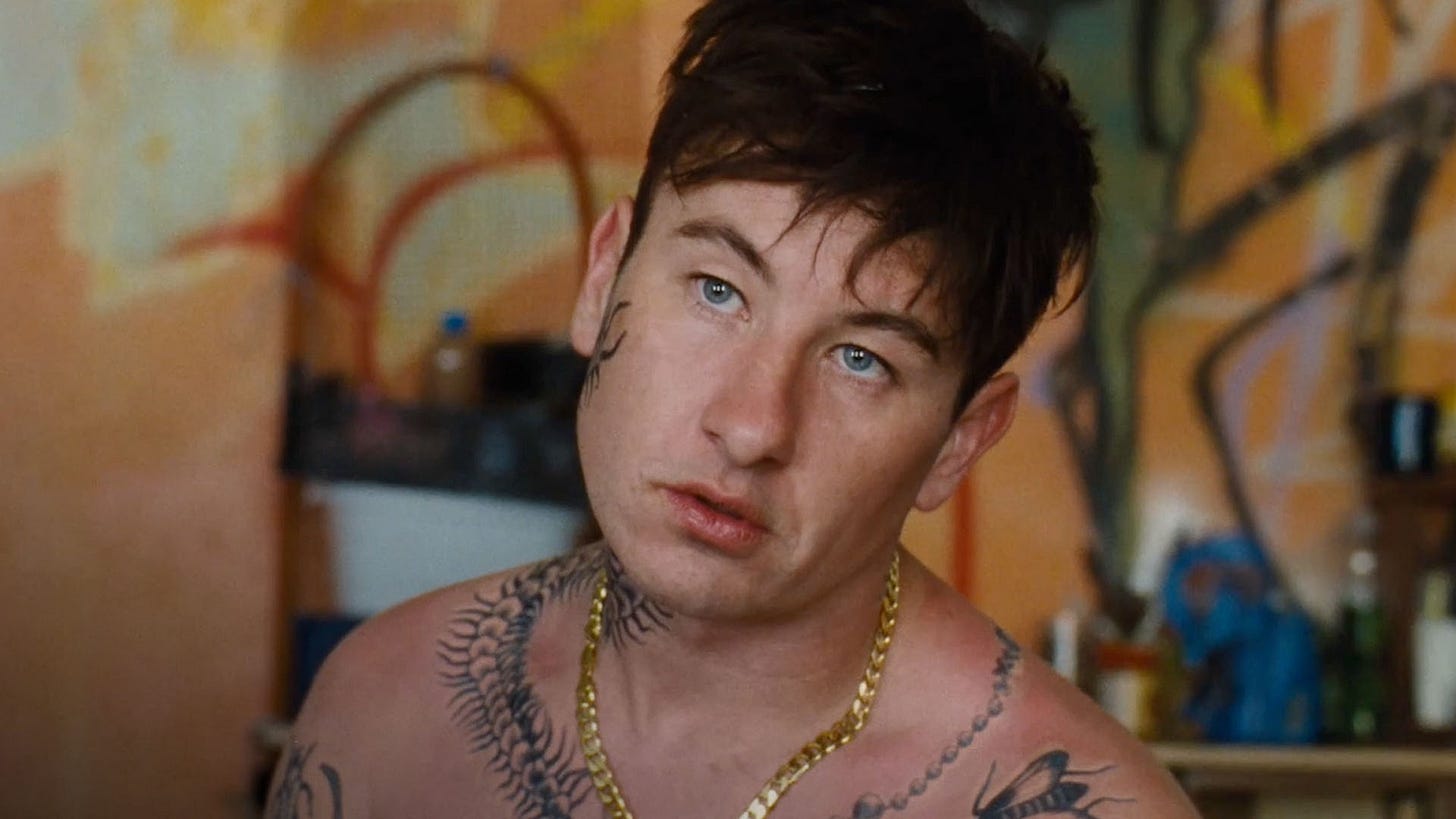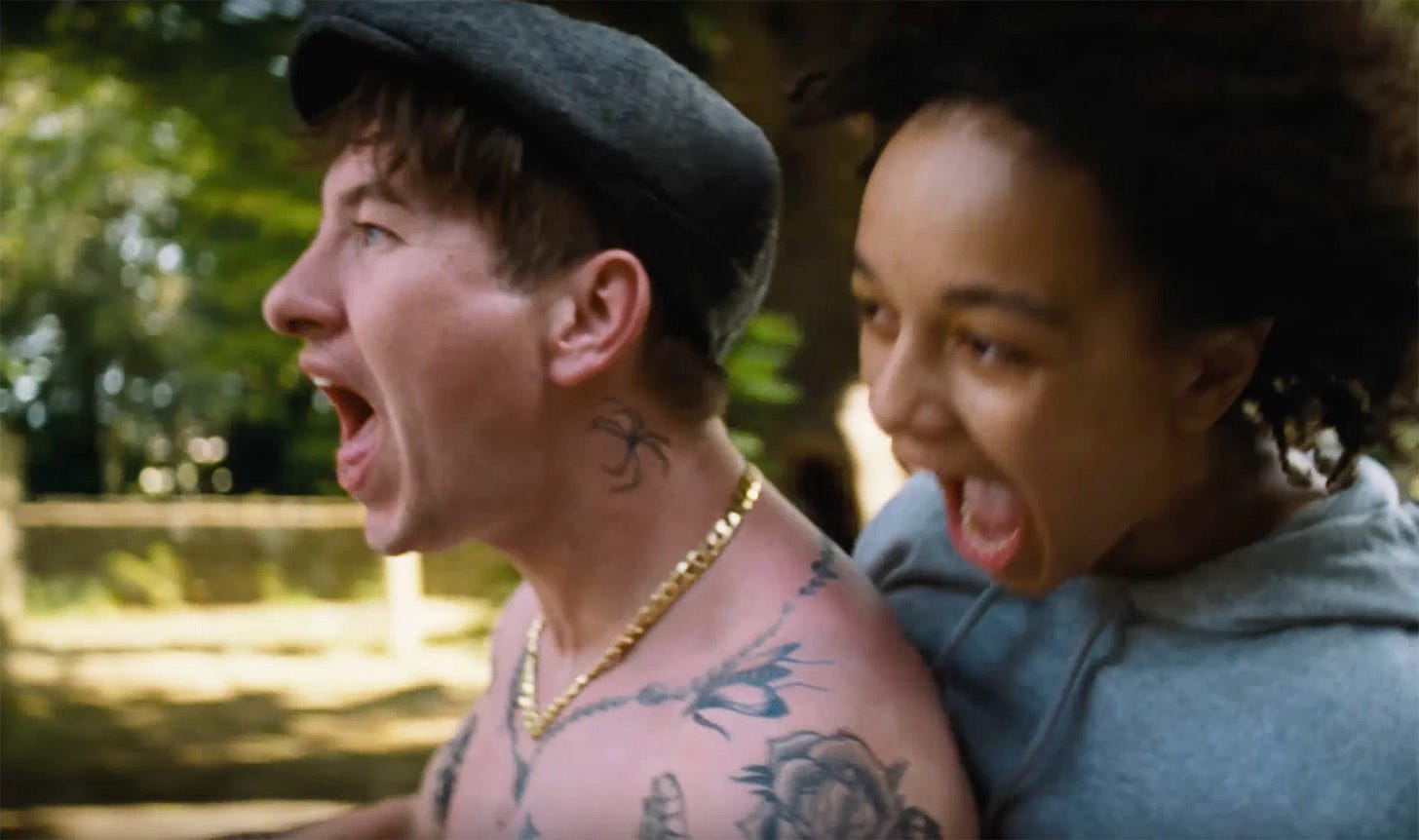Bird may not be one of Andrea Arnold’s best works, but its neglective reception is undeserved
Film review
Andrea Arnold is certainly one of, if not the best, living filmmakers who captures Britain through cinematic form. Her short films Milk (1998) and Wasp (2003) are outstanding, if not the best examples of short-form storytelling. Her first feature Red Road (2006), is one of the best debuts in British cinema. There’s no question that Arnold can deliver the goods. However, her latest work Bird may be one of her most poorly received films among critics. It’s Arnold’s first fictional feature in eight years since American Honey (2016) yet cinemas nationwide aren’t jumping to take advantage of the opportunity and deliver a season dedicated to the director's work alongside this new release. It’s strange that one of Britain's best talents is being somewhat neglected here. So where has Arnold gone wrong with this latest contribution?
Saltburn star Barry Keoghan and one of Germany’s best talents thrashing the arthouse scene Franz Rogowski feature alongside young newcomer Nykiya Adams in this contemplative tale. Bailey (Adams) navigates life in a deprived community in northern Kent. Struggling with the dynamics of her home with her father ‘Bug’ (Keoghan), Bailey wanders elsewhere, meeting a peculiar character called ‘Bird’ (Rogowski) who becomes her companion in coping with day-to-day life.
If we start with what went right, Keoghan and Rogowski are highly entertaining and engaging here. None of the performances are at fault. She hasn’t lost her ability to capture authentic British social realism, especially through her knack for selecting appropriate music that connects you emotionally with the environment on display. Songs such as Yellow by Coldplay, and The Verve’s Lucky Man, which are all too familiar to the nation feature alongside Rednex’s Cotton Eye Joe for a hit of nostalgia. The familiarity that Arnold works best with also shines in Bird’s landscapes such as council estates, fields and the British coast. Familiar ingredients from the director's previous works are present, so what’s missing?
While Nykiya Adams delivers a competent performance, Bailey isn’t a character that radiates a great deal of interest. Most likely because she doesn’t have much at stake. She doesn’t wander too deeply into the dangerous territory that we’re used to seeing with Arnold’s previous protagonists. And that may be the most stark difference here along with her relationship with Bird venturing into the fantastical, breaking away from the realism we’re all used to seeing with Arnold’s works.
Along with her adaptation of Wuthering Heights (2011), Bird is among Anrold’s least explicit works, with Red Road, Fish Tank (2009), and American Honey unafraid to show some extremity and venture deeper into the dark side of human nature. Taking a safer approach with this tale may be justified by the dominant use of child actors, however, this insight from Arnold speaking at Cannes earlier this year may suggest why her intentions with the piece ended up being a bit muddy:
“It was the hardest film I ever made. There were many challenges, more than usual, and there seemed to be more restrictions than I’d ever known. Lots of things I’ve put on the page and cared about got lost, so the edit was really hard. It was proving really hard to carve from the rushes something of the film I had intended. I was grieving the losses and I felt pretty vulnerable.”
It’s unclear what restrictions she’s referring to, however, Rogowski expressed some frustrations regarding the production process at the festival press conference:
“every child had its own agent, its own supervisor, its own intimacy coordinator like it was madness. We had like 20 to 30, I don’t know, guards, on set. And it’s true that Andrea is very careful and tasteful and respectful so it would have been great sometimes to just feel a bit more trust. But I think that's a cultural thing, we are so scared nowadays to expose our kids to maybe you know a swear word which is ridiculous because we allow them to use social media, YouTube for hours every day, and it feels a bit off balance right now.”
At this point, we don’t truly know to what extent these procedures and restrictions had a detrimental effect on the vision Arnold had in mind. There may have been other restrictions unrelated to the ones I’m speculating on here as to why elements that were cared so much for got cut. We also don’t know whether these missing pieces would have enhanced the film or changed it completely. But it’s worth reassuring you that Bird is still a strong piece of work and most likely worth your time. While it may not be among Arnold’s best works, this is still an example of what she does best. It is a vision from a director who is truly in tune with her background and replicates it magically onto the screen.
British cinema is no superpower on the world stage. Mostly due to its risk-averse and conservative approach to creativity. However, Arnold is one of the rare native filmmakers who tries to break that mould. This particular work may not even be an example of doing such, but her contributions to cinema are something to be alerted to and celebrated whenever given the chance. The negligence towards this work is undeserved.
Out in UK cinemas now




